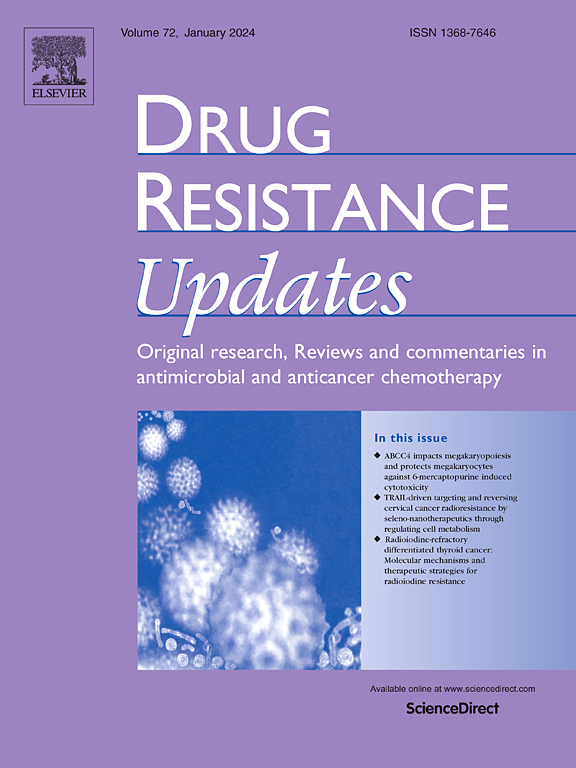Targeting TRAP1-dependent metabolic reprogramming to overcome doxorubicin resistance in quiescent breast cancer
IF 15.8
1区 医学
Q1 PHARMACOLOGY & PHARMACY
引用次数: 0
Abstract
Aims
TRAP1 is involved in metabolic reprogramming and promotes drug resistance. We aimed to explore whether a novel HSP90 inhibitor, C210, overcomes doxorubicin (DOX) resistance of quiescent breast cancer cells by targeting TRAP1.
Methods
Breast cancer cells were induced to quiescence by hypoxia and low glucose. The relationship of cell metabolism with HSP90 and TRAP1 was investigated by Western blotting, ECAR, OCR, mitochondrial complex activity, and proteomic analysis. The targets of C210 and their functions were analyzed by SPR and immunoprecipitation. The antitumor effect in vivo was investigated with mouse tumor model.
Results
In hypoxia and glucose deprivation, breast cancer cells exhibited elevated TRAP1 and an OXPHOS-enhanced quiescent phenotype. These cells were highly resistant to DOX but more sensitive to C210. C210 disrupted TRAP1's interaction with OXPHOS-associated client proteins, prompting proteasome-dependent degradation of these proteins, thereby reducing OCR, mitochondrial ATP production and resulting in selective elimination of the quiescent cancer cells by inducing mitochondrial apoptosis which could be reversed by exogenous ATP. Moreover, C210 targeted glycolytic, amino acid, and β-oxidation-associated proteome. C210 demonstrated promising in vivo anticancer efficacy which was particularly related to OXPHOS inhibition.
Conclusions
C210 eliminates DOX-resistant quiescent breast cancer cells by targeting TRAP1-dependent bioenergetics.
求助全文
约1分钟内获得全文
求助全文
来源期刊

Drug Resistance Updates
医学-药学
CiteScore
26.20
自引率
11.90%
发文量
32
审稿时长
29 days
期刊介绍:
Drug Resistance Updates serves as a platform for publishing original research, commentary, and expert reviews on significant advancements in drug resistance related to infectious diseases and cancer. It encompasses diverse disciplines such as molecular biology, biochemistry, cell biology, pharmacology, microbiology, preclinical therapeutics, oncology, and clinical medicine. The journal addresses both basic research and clinical aspects of drug resistance, providing insights into novel drugs and strategies to overcome resistance. Original research articles are welcomed, and review articles are authored by leaders in the field by invitation.
Articles are written by leaders in the field, in response to an invitation from the Editors, and are peer-reviewed prior to publication. Articles are clear, readable, and up-to-date, suitable for a multidisciplinary readership and include schematic diagrams and other illustrations conveying the major points of the article. The goal is to highlight recent areas of growth and put them in perspective.
*Expert reviews in clinical and basic drug resistance research in oncology and infectious disease
*Describes emerging technologies and therapies, particularly those that overcome drug resistance
*Emphasises common themes in microbial and cancer research
 求助内容:
求助内容: 应助结果提醒方式:
应助结果提醒方式:


